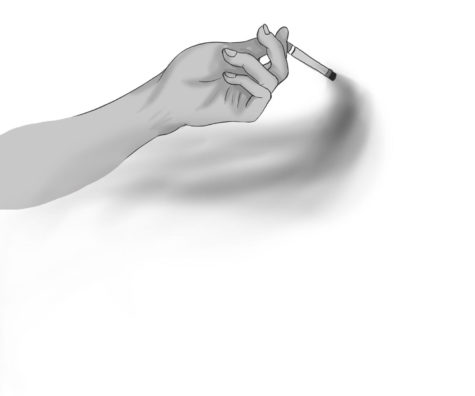School policies revised to include help with addictions
October 3, 2019
High schools across the state are experiencing an epidemic of a teenage addiction to vapes and THCs. A recent surge in vaping at DGN has prompted changes to the school vaping policy.
According to Associate Principal for Students and Staff Kelly Zuerner, the old school policy was built around an “A/B code violation system.”
The A code violation was for any student caught with possession in school. This would tend to result in a Saturday morning detention. A student caught using THC or vapes at school would suffer a B code violation, which results in suspension.
Under the new policy, there is no distinction between possession and usage. A student’s first infraction would result in one day of in-school suspension and a two month period of social probation. Any further infractions would lead to an extra day of in-school suspension along with a two-month social probation.
In accordance with the policy, students do have an opportunity to absolve themselves from the two-month social probation by completing an educational program with Keith Bullock, the Student Assistance Program Coordinator. This two-hour program educates students about the realities of substance abuse.
This new policy was created in response to a spike in the usage of tobacco or vaping products. In the 2014 Illinois Youth survey, only 22% of DGN juniors reported using any tobacco product including chewing tobacco and cigars. In 2016, only 17% of juniors admitted usage when prompted with the same question.
However in 2018, when DGN juniors were questioned about the use of any tobacco or vaping product over the past year, 35% admitted that they had.
In its simplest form, a vape is nothing more than a piece of technology. “If it wasn’t a piece of tech, I’m not sure it would be as interesting,” said Bullock.
Over his nine-year tenure, he has seen students who feel socially marginalized sometimes turn to vape and THC.
“Addiction is an equal opportunity problem,” said Bullock in an Omega interview.
A recent schoolwide email sent by Bullock and DGS student assistance coordinator Diana Benoist stated, “Marijuana use can impair decision-making, concentration, learning, and memory for days after use, especially in teens who use marijuana regularly.
“Marijuana use has also been linked with depression, anxiety, and psychosis, as well as suicidal thoughts among teens,” the email explained.
In a 2018 interview, DGN alum Jesse Alcauter said he began vaping after his friends did. “I don’t know if vaping was ever really cool, but a lot of kids do it,” Alcauter said.
The teenage brain is still developing, and any substance’s influence can alter this process. Alcauter explained that vaping does not always feel good.
“I didn’t really like the buzz. I got really bad headaches,” Alcauter said.
The brain begins development from the limbic system. The prefrontal cortex, which controls decision making, is one of the last parts to develop, meaning emotions develop at a quicker pace than reasoning.
This makes teenagers more susceptible to addiction. “If a person starts using, they are more likely to keep using,” said Bullock.
In teenage addiction, many companies see a life-long source of profit. By introducing enticing new flavors like “Murica E-juice,” they can appeal to adolescents. A 2018 study conducted by Truth Initiative reports 43% of young people started using e-cigarettes because of the alluring flavors.
Other companies rely on social media. During its 2015 launch, JUUL spent over $1 million in social media marketing, reported Georgia State University’s Dr. Jidong Huang,. In just one quarter of 2017, JUUL generated over $150 million, accounting for about “40% of e-cigarette retail market share.”
With the e-cigarette industry growing so rapidly, the world of teenage addiction is constantly changing. More teens are becoming dependant on these products, and some are unable to complete a school day without vaping, explained Mr.Bullock.
These issues have caused the administration to continue to evaluate the policies, especially because addiction is often unique to the individual.
“The policy is not a one-size-fits-all,” Bullock said.


























